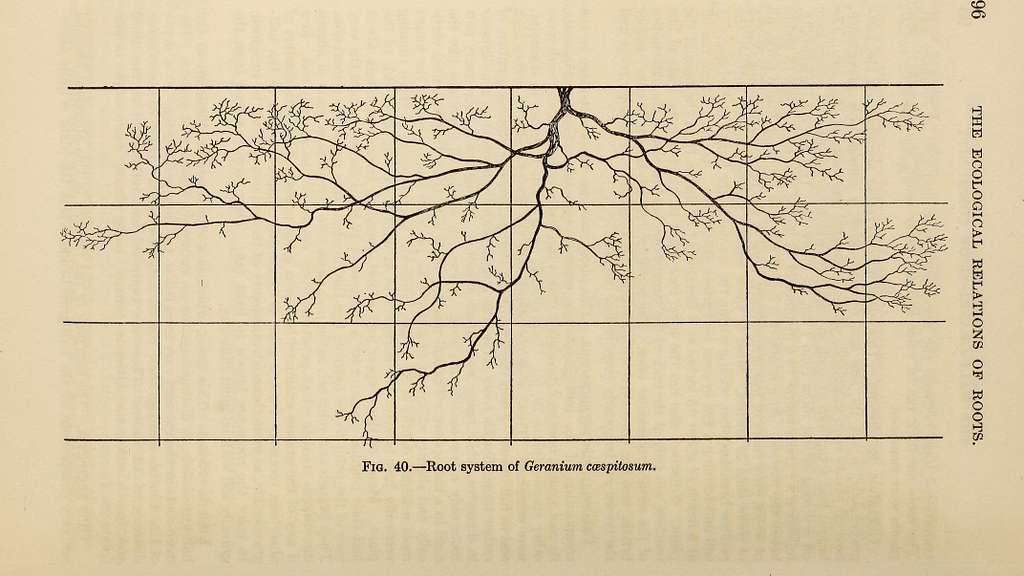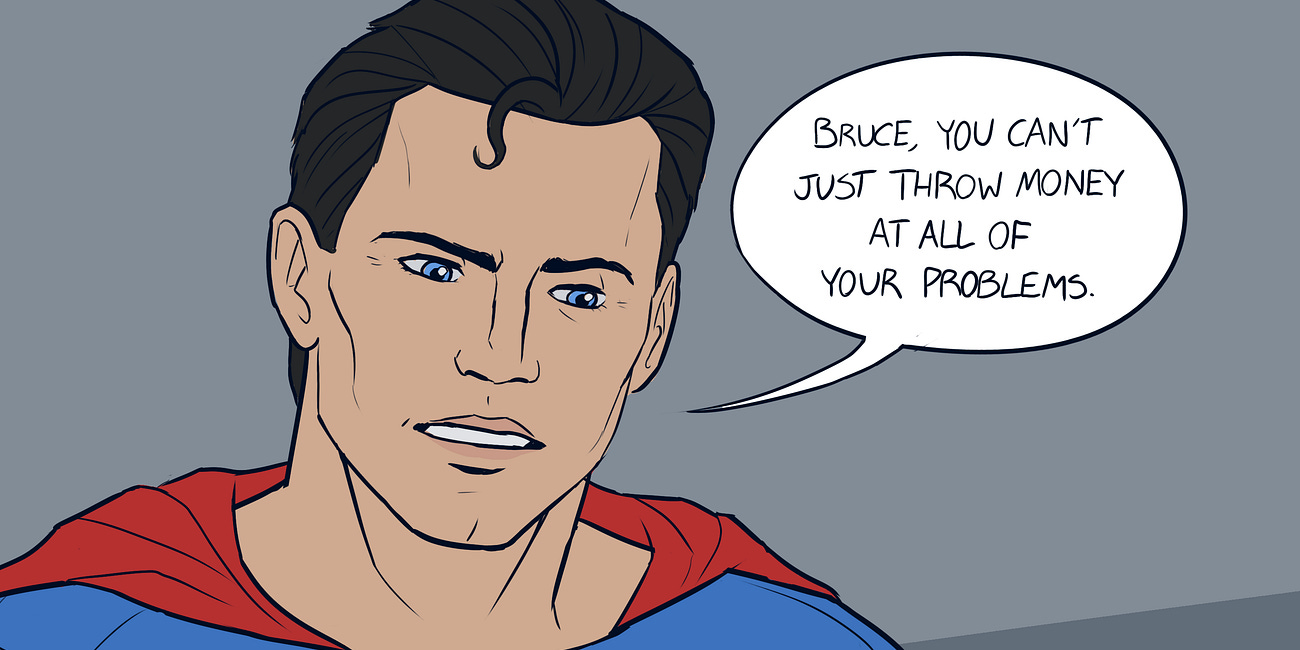If we scratch beneath the surface, we can start to see an important difference between revolutionary and radical.
Radical means getting to the roots. Think radish, radius, radiate. A reformist thinks you can fix a problem by changing a small part of the existing structure. A radical understands that you need to go to the roots, that maybe the whole structure is rotten to the core.
It’s not uncommon to hear an anarchist say something like, “we can’t fix the police, because the police aren’t broken. They’re working exactly the way they were designed to.” And if you know anything about the history of policing, you’ll understand that the anarchist is right. Which is probably why reformists do their best to erase our sense of history.
Anarchists are both radical and revolutionary. We look to the roots of a problem, and we want to completely reorganize our society to do away with all structures and cultures of hierarchy and oppression.
People who believe in the State might be revolutionaries without being radicals, because they refuse to see the roots of the problem.
Is it possible to be a radical without being a revolutionary?
This is where the Non-Profit Industrial Complex comes in, one of the most devious inventions of the 20th century for pacifying struggle.
The biggest non-profits are straight up charities, explicitly reproducing all the dominant values.
These Are the People Who Are Going to Save Us?
Recently, I had the chance to interview someone who had a job once helping a confluence of NGOs and “professional organizers” to set up a countersummit in protest of one of the COP events – the yearly conferences established by the Paris Agreement supposedly to deal with the climate crisis
But there are many smaller non-profits, closer to our movements. Many of them started with good intentions, and none of them would work if they didn’t apply a radical lens.
After all, there are plenty of people out there who know from their own experiences that they can’t trust the police, who understand that the health problems in their family came from a lack of access to fresh food and a toxic environment; people who remember what that fancy neighborhood used to look like before rents drove them and all their neighbors out, who have done the research or live next to the new lithium mine and see that “green growth” is a lie.
So, there need to be radical non-profits talking about prison abolition, food justice, gentrification, or degrowth in order to engage the people who are too experienced and too smart to trust a huge, mainstream charity.
But to get donations, to get the money to function, these non-profits can’t scare the shit out of wealthy donors by being honest and talking about the need for revolution. Their purpose is to decrease social conflict and smooth out the antagonism between those on top and those on bottom. They have to look respectable.
How can they accomplish that?
Through a single-issue focus. By siloing each of these issues so we don’t see the connections between all of them. By erasing our centuries-long history of struggle.
Who would put their faith in an effort to reform any of these institutions if we could see that every facet of life they show up in, they produce misery? …if we could trace their lineage back and understand that these institutions were founded by states that have extended their power through global conquest, genocide, enslavement, and ecocide? …if we remembered our history and remembered that most of today’s problems were yesterday’s reforms.
But what about the projects we looked at earlier? How could a community garden or a harm reduction supply distro or a campaign against the construction of a new jail be a part of a revolutionary movement if it could just as easily be the pet project of a non-profit trying to water down our struggle?
The difference is connection.
When we let our projects connect in a spirit of solidarity, we break those silos, we break the myopia of single-issue politics. We learn from each other.
When we understand how all our problems are interconnected and we begin to think and act accordingly, my garden becomes a weapon against the prison system. Your nighttime arson attack on a Tesla dealership becomes a part of my healthcare. Her fundraiser becomes a part of their volunteer free clinic. Their safe house for undocumented people becomes a part of his underground HRT service.
Sometimes, a radical project might establish itself as a legal non-profit to help get more donations. Often, we can get needed resources from a non-profit. We don’t need to be purists and we don’t need to hermetically isolate ourselves from things like NGOs. But we do need to understand their history and their purpose. We do need to protect ourselves from the exhaustion of so-called mutual aid projects that are a one-way funnel of resources. Resources have got to be redistributed, without any doubt, but getting rid of capitalism and artificial scarcity won’t be accomplished by food banks and medical supply distros. The only reason monopolies, oppressive inequalities, and large-scale scarcity exists in the first place is because capitalists and the States that back them have the military and political capability to take anything they want, no matter who they have to kill or dispossess.
In other words, criticizing non-profits doesn’t mean shunning anyone who works for one. Often, the lower level non-profit workers are the ones who hate non-profits the most. Other times, they simply don’t know of any other ways to address the problems with society, and seeing an approach based on solidarity, direct action, and cultivating real mutual aid will inspire them.
The major red flag is when someone who claims they can navigate the contradictions of the non-profit world withholds resources and solidarity to avoid ruffling feathers, interrupting the money stream, or upsetting their bosses.
The messiness of real solidarity is how we learn and grow. Single-issue silos prevent that.
Non-profits systematically use these silos to uphold their authoritarian methods and buffer themselves from any real feedback. To oppose one form of oppression in a reformist, pacifying way, they often use other forms of oppression that they don’t address.
Environmental non-profits that coordinate march routes with the police; anti-poverty non-profits with an abusive and patriarchal work environment; anti-racist non-profits entirely led by high salary managers with advanced university degrees: none of that would work if we understand that the prisons and capitalism and white supremacy and ecocide and patriarchy are all interconnected, they’re all upheld and updated by the State, and we need to oppose all of them.
Think this is a good point? Share it with a friend!









I’ve been in nonprofit 16 years and the last 6 or so I’ve been continuously frustrated with how we prop up these shitty systems that negatively impact our clients but then try to clean up the mess by helping the individual people affected. I’ve had a hard time articulating these frustrations well and this really hits the nail on the head. I’m sending it to everyone. Thank you.
I worked at a nonprofit for many years. I finally woke up but only some. The history of the organization was what was needed then and now. But the federal government didn’t like the good work and slammed harsh restrictions. Left the nonprofit organization with no real power to do much to help make real change in Tennessee. Then the agency began asking for $ from other nonprofits and smoozing it up with wealthy private law firms, having to beg them to take a few cases a year because the need was enormous and the help was a drop in the bucket! Early in its history the staff wasn’t all about their wages. But later people inside wanted more $ and then young attorneys came in with huge student loan debt! Anyway I learned more from your article about why I began to believe it just wasn’t right any more. There has to be a better way! Thank you.